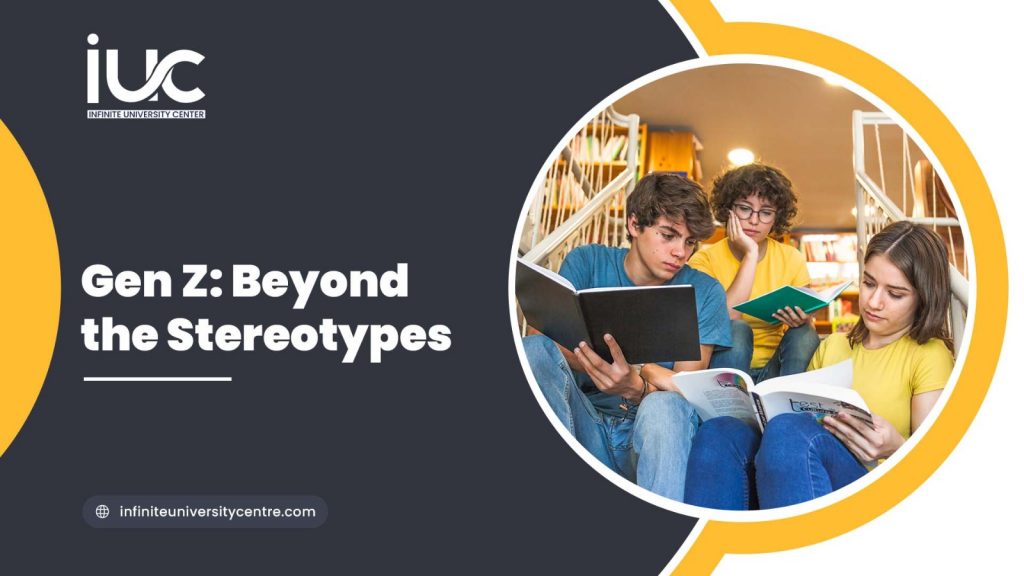A recent report by Duolingo has shed new light on the experiences and values of Gen Z international students, dispelling common misconceptions about this digitally native age group. Through interviews with seven international students attending universities in the US, UK, and Australia, the report reveals a generation that is cohesive, responsible, and driven.
A Cohesive Generation:
Contrary to popular belief, Gen Z is not just a group of tech-obsessed, attention-deficit, and self-centered individuals. Instead, they share a unified perspective on the world, shaped by their global connectivity and access to information. The report’s co-author, Anna Esaki-Smith, notes that despite geographic boundaries, Gen Z students from diverse countries and universities share a common thread in their views and experiences.
Responsible Approach to AI and Social media:
Gen Z is often misunderstood as being addicted to social media, but the report reveals a more nuanced reality. The report’s findings indicate emerging trends in Gen Z’s behavior and mindset. Students are making conscious efforts to detox from social media, recognizing its impact on their mental health and productivity. They are also cautious in their use of AI tools like ChatGPT, demonstrating a sophisticated understanding of their capabilities and limitations.
Emails Make a Comeback:
In an era of instant messaging apps, emails are experiencing a resurgence in popularity among Gen Z students. They value the structure and detail that emails provide, particularly in academic and professional settings. This trend highlights the enduring importance of effective communication in the digital age.
A Generation of Change-Makers:
Gen Z is poised to become a driving force in global politics and economics. With their sheer size, diversity, and connectivity, they are already making waves in social justice movements and climate change activism. As they enter the workforce and become increasingly influential, it’s essential for educators and policymakers to understand their mindset and values.
The Power of Gen Z:
With an estimated 70 million young people in the US, 251 million in China, and 116 million in urban India. The Gen Z’s sheer size is having a significant impact on global demographics and socio-economic landscapes. Their diversity and shared concerns about social issues and climate change make them a powerful force in shaping global politics and economics.
Fostering Educational Success and Economic Growth:
The report serves as a tool for educators and policymakers to tap into the potential of Gen Z. By understanding their concerns, values, and approaches to technology, we can create educational systems that foster their success and drive economic growth. As the world becomes increasingly interconnected, Gen Z is leading the charge towards a more cohesive, responsible, and globally-minded future.
Economic hardship:
The COVID-19 pandemic had a significant economic impact on older Gen Z’s in the US (aged 18-23), with over 50% reporting that someone in their household experienced job loss or a salary reduction. Young workers were particularly hard hit, bearing the brunt of widespread layoffs and pay cuts in the service industry.
Main Insights:
- Gen Z is a cohesive generation united by their global connectivity and access to information. They are responsible in their approach to technology, cautious in their use of AI tools, and making efforts to detox from social media.
- Emails are experiencing a resurgence in popularity among Gen Z students, highlighting the importance of effective communication.
- Gen Z is poised to become a driving force in global politics and economics, with a focus on social justice and climate change activism.
- Educators and policymakers must understand the values and mindset of Gen Z to foster their educational success and drive economic growth.
The Duolingo report offers a nuanced understanding of Gen Z international students, debunking myths and highlighting their responsible approach to AI and social media. As educators and policymakers, it is essential to recognize the cohesion and shared values of this generation, fostering educational success and driving economic growth. By understanding Gen Z’s mindset, we can unlock their potential and empower them to shape a better future.

